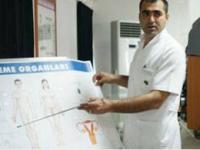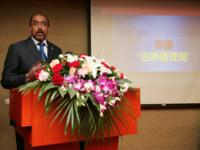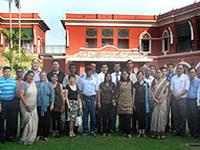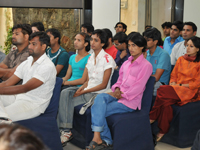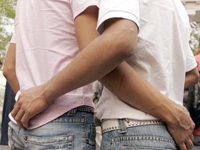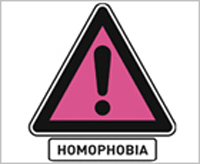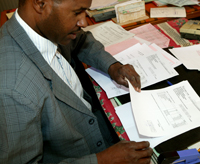
People living with or affected by HIV often require practical assistance to maintain adequate housing, keep child custody, enforce property and inheritance rights, or access health care, education or employment without discrimination.
Credit: UNAIDS/P.Virot
Experience in the response to AIDS has shown that access to legal services is an important part of guaranteeing protection from discrimination, getting redress for human rights violations, and expanding access to HIV prevention and treatment. Yet such programmes are not sufficiently supported by national AIDS responses, and where they do exist, quality and scale are often insufficient.
The International Development Law Organization (IDLO), the UNAIDS Secretariat and the United Nations Development Programme (UNDP) hosted an international expert consultation on strengthening and expanding HIV legal services at IDLO headquarters in Rome, 3-6 May.
Meeting participants contributed to the development of tools for improving access to legal services for people living with HIV and key populations at higher risk of HIV infection, particularly those in low- and middle-income countries. The tools will support countries to develop and strengthen programmes and proposals for funding, including to the Global Fund to Fight AIDS, Tuberculosis and Malaria.
Susan Timberlake, Senior Human Rights and Law Adviser with the UNAIDS Secretariat, explains that UNAIDS advocates that access to justice must be a basic, programmatic component of the movement for universal access to HIV prevention, treatment, care and support. “The persistent reality of discrimination – whether due to HIV status, gender, or social status – means that legal services are a critical and necessary part of a comprehensive response to the epidemic,” says Timberlake.
People living with or affected by HIV often require practical assistance to maintain adequate housing, keep child custody, enforce property and inheritance rights, or access health care, education or employment without discrimination. Access to legal services is even more important in punitive legal environments. An increasing number of countries are passing overly-broad laws to criminalize HIV transmission. Men who have sex with men, sex workers and people who use drugs face criminal sanctions in many countries, blocking access to HIV services and heightening HIV vulnerability. According to research commissioned in 2008 by the International Task Team on HIV-related Travel Restrictions, some 60 countries deny entry, stay and residence based on HIV status.
No “one size fits all” for legal services
Legal services in the context of HIV take many forms. These include: legal information and advice, including through telephone “hotlines”; formal litigation, including strategic litigation to create legal policy; mediation and other forms of dispute resolution; assistance with informal or traditional legal systems (e.g. village courts); and community legal education. Legal service providers are not always lawyers. They may be paralegals, volunteers, students or peer educators. Such services are provided in a range of settings, including HIV treatment and counselling centres, “mainstream” legal aid centres, as well as prisons and community settings. Work may also be linked to advocacy for law reform.
According to Mandeep Dhaliwal, Cluster Leader on Gender, Human Rights & Sexual Diversities with the UNDP HIV Practice, the rationale for supporting HIV legal services rests on two related arguments. “One, they are essential as a means to protect the human rights of marginalized and vulnerable populations. Two, they are essential as a means to ensure optimal public health and development outcomes – both of which are underpinned by the realization of rights,” says Dhaliwal.
One of our goals as the Joint UN Programme on HIV/AIDS is to support countries to recognize how important legal services can be to their national HIV response, and then work with them to develop a strategy to scale-up these services.
Mandeep Dhaliwal, Cluster Leader: Gender, Human Rights & Sexual Diversities UNDP HIV/AIDS Practice Bureau for Development Policy
However, too often such programmes do not get the support they need. “One of our goals as the Joint UN Programme on HIV/AIDS is to support countries to recognize how important legal services can be to their national HIV response, and then work with them to develop a strategy to scale-up these services,” explains Dhaliwal. “Existing HIV legal services are generally small in scale and patchy in coverage. With high levels of ‘legal’ marginalization of vulnerable populations, the achievement of universal access to prevention, treatment, care and support demands a commitment to legal protection and access to legal services.”
The meeting in Rome supported the development of three tools to improve access to HIV legal services:
- Models of legal services applicable in different situations
- Training curriculum for lawyers
- Resource mobilization strategies.
“There are extraordinary examples of great work being done to provide legal services. We know the importance of providing an enabling legal environment to HIV prevention and treatment access,” says David Patterson, Manager of IDLO's HIV and Health Law Programme, “Why have such legal services not been taken to scale with the same urgency that we seek to provide treatment?”
Participants included legal service providers and leaders of organizations working with people living with HIV, women’s groups, people who use drugs, men who have sex with men and sex workers, as well as representatives from IDLO, UNAIDS, UNDP, and the Global Fund. They came from diverse countries and epidemic settings, including Australia, Botswana, Brazil, China, Denmark, Egypt, Georgia, Guatemala, India, Indonesia, Nepal, Papua New Guinea, St Lucia, Uganda, Ukraine, the United States of America and Viet Nam.




